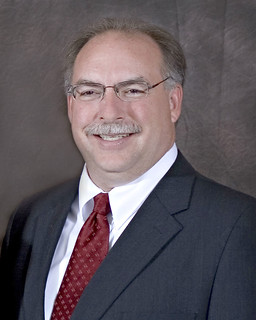New association chairman Tappe to emphasize recruiting forestry students
MONTICELLO, Ark. — Dr. Phil Tappe has been named interim dean of the School of Forest Resources at the University of Arkansas at Monticello and director of the Arkansas Forest Resources Center (AFRC) on the UAM campus.
July 14, 2014
Fast Facts:
- Director of Arkansas Forest Resources Center for the Division of Agriculture is chosen to chair the Southern Region of National Association of University Forest Resources Program
- Southern Region covers 13 states and more than 20 universities
(413 words)
MONTICELLO, Ark. – The newly elected leader of the southern region of a national forestry organization is working on recruiting new forestry students, enhancing engagement with forest landowners, and increasing research competitiveness.
Philip Tappe, the director of the Arkansas Forest Resources Center for the University of Arkansas System Division of Agriculture and the dean of the School of Forest Resources for the University of Arkansas at Monticello, was chosen as the chair for the Southern Region of the National Association of University Forest Resources Programs.
Through NAUFRP, deans and department chairs of forestry programs from around the country, policy makers, landowners, and forest users get connected to address ecology, policies and opportunities related to forestry.
Within the association, there are four regions: Northeast, North Central, Southern, and Western.
Tappe was chosen by fellow members to chair the Southern Region of NAUFRP, which includes 13 states and over 20 universities.
“I was very honored, of course, to be elected to this position,” Tappe said. He was given the position at a summer regional meeting in conjunction with the annual Forest Landowners Association conference, held in New Orleans on June 4.
Former Southern Region chair and the chair of the department of forestry at the University of Kentucky, Terrell Baker, said, “I think Phil is an excellent colleague and will be an excellent chair of NAUFRP’s southern region. He’s a conscientious administrator who participates in many NAUFRP efforts to improve the ability of forestry programs to educate students, conduct research, and work with landowners and other professionals.”
His main responsibilities as the chair are to lead the association’s southern region activities and initiatives and to represent the region at the national level.
Baker said it’s important for the chair to reach out to other organizations and maintain relationships because “our students ultimately go into careers with these agencies.”
It is also an opportunity to help the research funding for forestry programs to remain available, he said. Members of the associations create curricula and conduct research to prepare students that will protect the quantity and quality of America’s forests.
Tappe is a strong advocate for his university research program and for his students, Baker said. “He’s always ready to roll up his sleeves when necessary,” adding that these are the qualities that the other members look for in a chair.
Baker, who just completed his 2-year term as the Southern Region chair will still be actively involved in the organization.
To learn more about the NAUFRP, visit www.naufrp.org
For more information about forestry, visit www.uaex.uada.edu or contact your county extension office.
The University of Arkansas System Division of Agriculture offers its programs to all eligible persons regardless of race, color, national origin, religion, gender, age, disability, marital or veteran status, or any other legally protected status, and is an Equal Opportunity Employer.
By Kezia Nanda
For the Cooperative Extension Service
U of A System Division of Agriculture
Media Contact: Mary Hightower
Dir. of Communication Services
U of A Division of Agriculture
Cooperative Extension Service
(501) 671-2126
mhightower@uada.edu
Related Links
